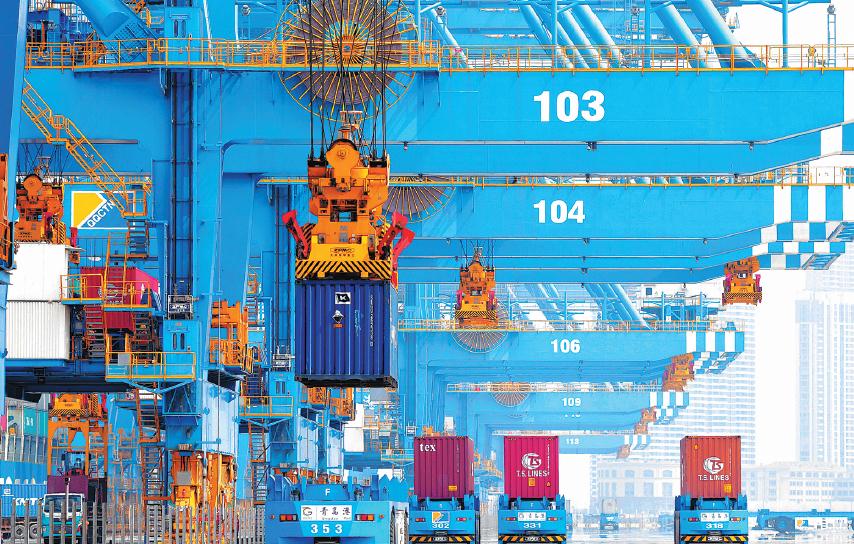
To ensure the stable growth of foreign trade, China has rolled out a set of measures to foster a more enabling climate for businesses in the sector, to help them overcome practical challenges and navigate the rising tide of protectionism in the global economy, officials and experts said.
Synergy between trade, financial and industrial policies will be ensured to provide more holistic support for the foreign trade sector — a key driver of economic growth, they said, stressing the confidence of the world's second-largest economy in its ability to weather external shocks.
Amid heightened global uncertainties, the regular introduction of policy support on this front sends a clear signal that foreign trade remains a priority in China's economic agenda, said Sang Baichuan, dean of the Institute of International Economy at the University of International Business and Economics.
In the first 10 months of this year, the total value of China's goods trade reached 36.02 trillion yuan ($4.97 trillion), reflecting a 5.2 percent year-on-year increase, data from the General Administration of Customs showed.
READ MORE: China beefs up policy support to bolster foreign trade, investment
Despite maintaining a stable growth trajectory for most of the year, there has been a slight slowdown in the pace of expansion of foreign trade since August, Wang Shouwen, vice-minister of commerce, told a news conference on Friday.
Moreover, enterprises have reported the need to further expand the coverage of export credit insurance, as well as difficulties in securing trade financing and addressing logistical bottlenecks in maritime transportation, Wang said.
To this end, the ministry on Thursday announced a series of policy measures, with a particular focus on extending the coverage of export credit insurance, strengthening credit allocation, bolstering cross-border e-commerce and enhancing maritime transport capacity, among others.
Faced with growing complexities stemming from trade and monetary policy changes in developed markets, it is essential to double down on efforts to keep foreign trade businesses afloat, said Yang Chang, an analyst at Zhongtai Securities.
ALSO READ: China's foreign trade posts resilience despite challenging external environment
Enhancing financial support will be a key priority, as it can help enterprises mitigate the risks they may encounter and reduce their working capital cycles — which is of critical importance, especially for small and medium-sized businesses, Yang added.
The People's Bank of China will also work to keep the renminbi exchange rate stable at an adaptive and balanced level, while strengthening guidance to prevent the market from forming one-sided views, said Liu Ye, an official from the country's central bank, at the Friday news conference.
Responding to a question about the impact of potential tariffs from the administration of United States president-elect Donald Trump, Vice-Minister Wang said Beijing stands ready to engage in constructive dialogue with Washington.
China is also willing to expand areas of collaboration, manage differences, and foster the long-term, stable development of bilateral economic and trade relations with the US, Wang added.
READ MORE: China says open to talks, cooperation with US to promote economic ties
Historical records have shown that countries imposing tariffs on China have failed to address their own trade deficit issues, as the costs of such measures are ultimately borne by consumers and end-users in the importing countries, leading to higher prices and inflationary pressures, Wang said.
"The Chinese economy has demonstrated remarkable resilience, with vast potential and dynamism. We are confident in our ability to resolve and withstand the effects of external disruptions," Wang added.
Moving forward, China will further bolster the competitiveness and adaptability of its foreign trade through a combination of trade liberalization and facilitation reforms, export structure upgrading, and strengthened cooperation with Belt and Road Initiative partner economies, said Wen Bin, chief economist at China Minsheng Bank.



